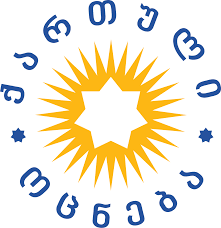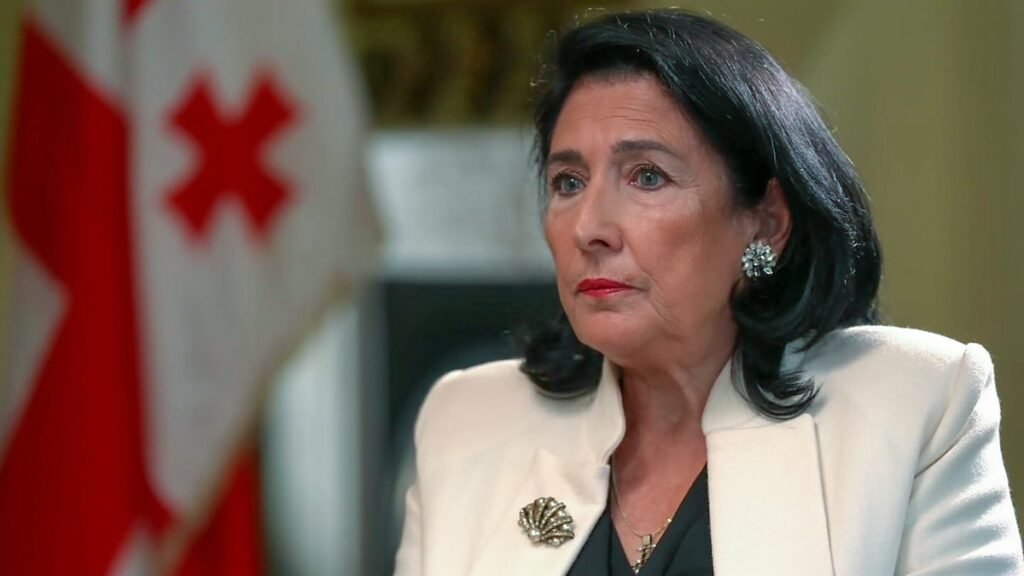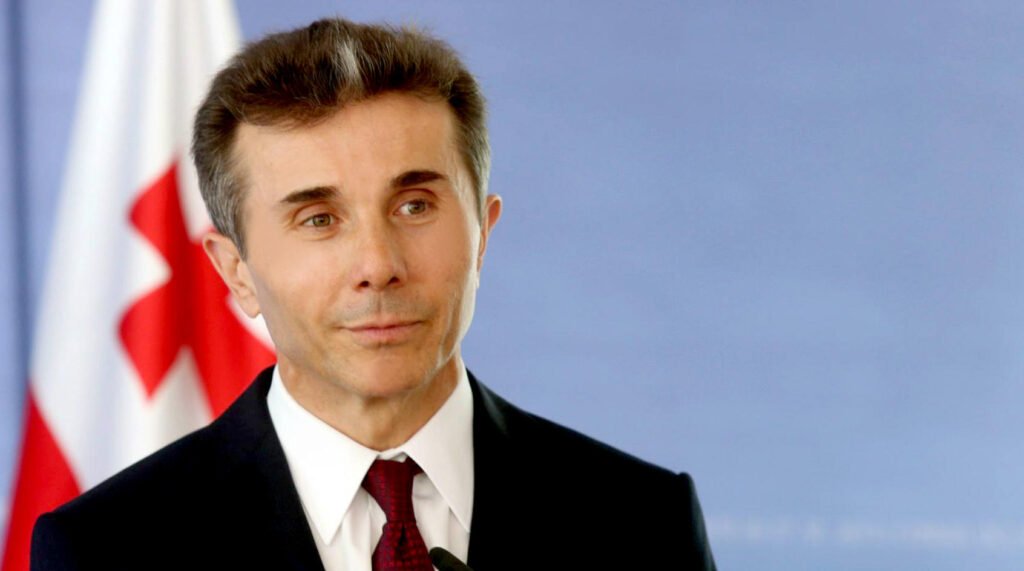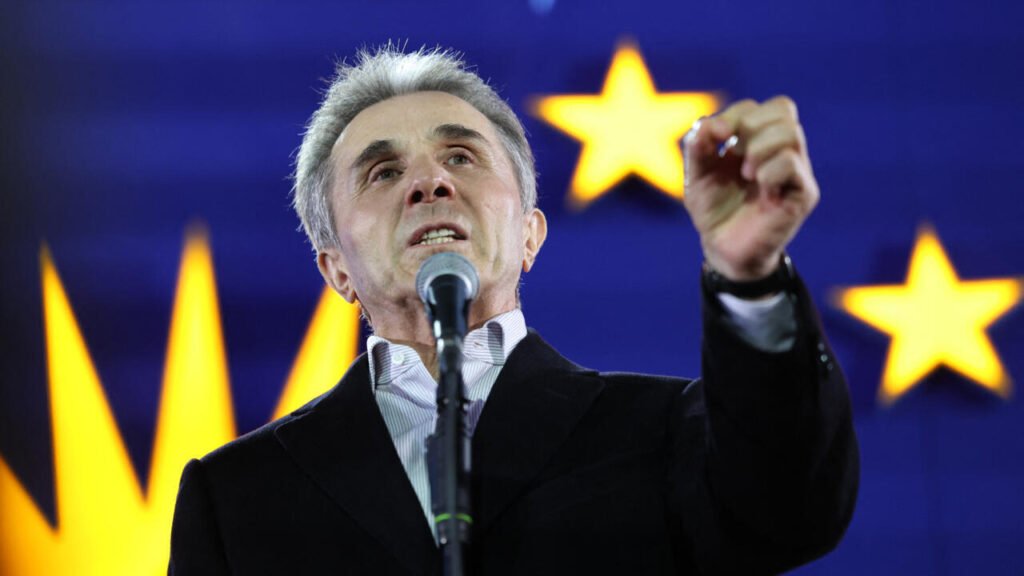Contested Georgian Elections: Allegations of Fraud, Polarization, and International Tensions
In a charged and polarized political atmosphere, Georgia’s recent elections have become the subject of intense scrutiny and controversy. Videos of alleged ballot-stuffing and reports of scuffles at polling stations spread widely, contributing to a climate of suspicion around the electoral process. Observers documented a range of irregularities, adding fuel to claims of misconduct from both sides. Amid this, exit polls presented conflicting results: while one poll indicated a slight lead for the opposition, two others favored Georgian Dream, the ruling party, resulting in claims of victory from both camps.
Ultimately, Georgian Dream emerged with the majority. Yet, the opposition quickly disputed the results, alleging fraud and manipulation. President Salome Zourabichvili, who has distanced herself from the government in recent years, has been vocal in her criticism, condemning the election as “rigged” and comparing it to controlled elections under authoritarian regimes. This sentiment has found resonance in the international community, drawing attention from Western powers and international media.
Observers’ Findings: Mixed Signals on Electoral Integrity
The election was monitored by a significant contia angent of over five hundred international observers, including representatives from the European Union, NATO, and other global organizations. While they documented some irregularities—such as isolated cases of ballot-stuffing and double voting—their report stopped short of declaring the entire election fraudulent. Observers noted procedural issues, including overcrowded polling stations and occasional breaches of secrecy, but overall deemed the administration of the election process adequate.
The observers’ restrained criticism disappointed the opposition, who had anticipated a stronger rebuke of Georgian Dream’s handling of the election. The international monitoring report also highlighted laws perceived as repressive, such as the foreign influence law requiring NGOs and media outlets to disclose foreign funding sources. However, observers were careful to clarify that they would continue to watch post-election developments closely.


Zourabichvili’s Campaign and the Opposition’s Claims
Following the preliminary results, President Zourabichvili intensified her claims of election manipulation, leveraging her connections with Western governments and media to rally support. Her arguments emphasize that, based on polling data favoring European Union membership, it was unlikely Georgian Dream could have won without interference. Zourabichvili argues that only the opposition truly represents “pro-European” values, framing Georgian Dream as increasingly aligned with Russian interests.
The president and opposition leaders have called for a new election, fully overseen by international bodies, to ensure transparency.
Despite a lack of concrete evidence, they maintain that Georgian Dream’s strong support in rural areas is implausible, suggesting instead that these results are a product of manipulation. This framing has sought to resonate with Western backers, many of whom have expressed apprehension over Georgia’s political direction under Georgian Dream.
Contested Georgian Elections: Allegations of Fraud, Polarization, and International Tensions
In a charged and polarized political atmosphere, Georgia’s recent elections have become the subject of intense scrutiny and controversy. Videos of alleged ballot-stuffing and reports of scuffles at polling stations spread widely, contributing to a climate of suspicion around the electoral process. Observers documented a range of irregularities, adding fuel to claims of misconduct from both sides. Amid this, exit polls presented conflicting results: while one poll indicated a slight lead for the opposition, two others favored Georgian Dream, the ruling party, resulting in claims of victory from both camps.
Ultimately, Georgian Dream emerged with the majority. Yet, the opposition quickly disputed the results, alleging fraud and manipulation. President Salome Zourabichvili, who has distanced herself from the government in recent years, has been vocal in her criticism, condemning the election as “rigged” and comparing it to controlled elections under authoritarian regimes. This sentiment has found resonance in the international community, drawing attention from Western powers and international media.
The Foreign Influence Law and Western Responses
A central issue in the recent election debate is the foreign influence transparency law, which Georgian Dream passed amidst criticism. The law mandates disclosure of foreign funding sources for NGOs and media outlets, which Western nations see as reminiscent of Russian policies designed to restrict external influence. The United States and European Union have responded with sanctions and withheld financial support, aiming to pressure Georgia to repeal this law and align its policies with Western democratic standards.
This approach has seen prominent Georgian officials, including Georgian Dream’s founder Bidzina Ivanishvili, face personal sanctions and visa restrictions.

Recent U.S. reviews of its relationship with Georgia and the European Parliament’s 2024 resolutions have echoed strong disapproval, reflecting fears that Georgian Dream’s policies could pull the nation closer to Russian influence. For Georgian Dream’s critics, the foreign influence law signifies a move away from Western alignment, and they argue it contravenes the country’s long-standing aspiration for EU membership.
Georgian Dream’s Position: Stability, Neutrality, and Domestic Appeal
Despite the opposition’s allegations and Western concerns, Georgian Dream has appealed to its voter base with a focus on stability and neutrality. Presenting itself as the party of peace, it has warned that opposition-led alliances with Western powers could entangle Georgia in regional conflicts, including the ongoing war in Ukraine.

Georgian Dream’s rural base has responded favorably to this message, seeing the party as a bulwark against potential unrest. Georgian Dream’s policies, particularly around economic management and non-alignment, have contributed to projected GDP growth of 7.1 percent and low inflation rates. By maintaining a neutral stance on Russian sanctions, Georgia has capitalized on its role as a regional trade hub, benefiting from increased business opportunities. These economic gains have bolstered Georgian Dream’s support, particularly outside the capital, Tbilisi, where voters tend to prioritize economic stability over foreign policy alignment.
Cultural Divides and Social Conservatism
Georgia’s recent political discourse has been marked by an intensifying cultural divide. Georgian Dream has tapped into socially conservative values, including opposition to LGBT rights, to solidify its support among traditional voters. In contrast, opposition parties often align with more progressive urban views, especially in Tbilisi. This divide extends beyond policy into socio-cultural perceptions, with rural voters sometimes feeling dismissed by urban elites as “backward.” The opposition’s rhetoric around “European values” resonates less with this demographic, whose concerns center more on daily stability and economic security than on ideological alignment with Western norms.
A Potential Standoff with Western Allies
In the aftermath of the election, the opposition has launched efforts to challenge the results, appealing to Western allies for support. President Zourabichvili has urged Western governments to withhold recognition of the results until further investigations are conducted. Her rhetoric, which frames the situation as a “Russian takeover,” seeks to mobilize international pressure against Georgian Dream.
If Western powers ultimately refuse to recognize the election, Georgia could face a significant diplomatic and domestic impasse. The opposition, a coalition without the internal unity to pose a decisive challenge independently, relies heavily on external support. However, public appetite for direct intervention or upheaval remains limited within Georgia, as citizens prioritize stability in an increasingly volatile region.
Georgian Dream’s appeal for neutrality and incremental progress has resonated with a substantial segment of the Georgian population. If opposition efforts to mobilize international support succeed, Georgia may find itself at a crossroads, facing the prospect of intensified international scrutiny and potential isolation. For now, Georgian Dream remains committed to its vision of a stable, neutral Georgia, even as the country navigates the challenges posed by external pressures and internal divisions.

